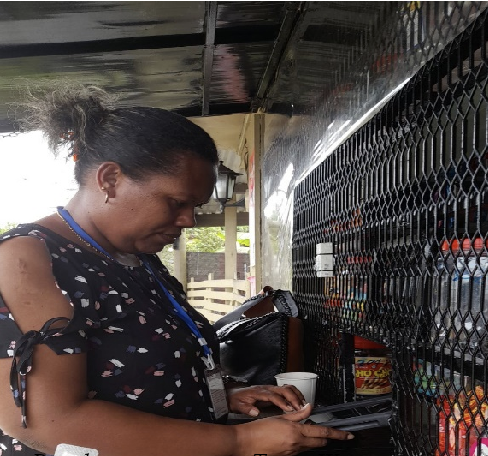Can Using Moveable Property as Collateral Improve Credit Access and Business Outcomes for Enterprises in Fiji?

In collaboration with the Fiji Bureau of Statistics, the Reserve Bank of Fiji, and the Asian Development Bank, researchers are conducting a randomized evaluation to measure the impact of a reform enabling businesses to use moveable property as collateral for accessing credit.
Across low- and middle-income countries, small and medium enterprises (SMEs) have difficulty accessing finance. One key barrier is collateral – banks will often only accept land or buildings as collateral for loans, and SMEs tend not to own these assets, or if they do, they lack formal titles. One key reason is a legacy legal framework for lending that creates friction, risks, and costs around collateral apart from land and buildings. In Fiji, access to finance is the second most important obstacle faced by medium-sized firms,1 and the supply side has faced the collateral barriers that are common globally.
To help overcome this constraint on collateral, the Fijian Parliament approved a new law called the Personal Property Securities Act 2017 and the implementation of an electronic personal property securities registry, as part of the national secured transaction framework (STF) put together by the Reserve Bank of Fiji, with support from the Asian Development Bank’s Private Sector Development Initiative (PSDI). The reform has created an enabling framework for SME financing by allowing a range of moveable property such as vehicles, machinery, inventory, receivables, and contracts, to secure financing. During the implementation of the reform, banks have been encouraged to develop new SME credit products or modify existing ones, to enable using movable property as collateral.
Researchers partnered with IPA, the Fiji Bureau of Statistics, the Reserve Bank of Fiji, and the Asian Development Bank to conduct a randomized evaluation of the STF reform to measure its impact on the number of firms accessing the new movable property credit products offered by banks, and the lending terms. Researchers are also measuring outcomes on investment in assets and labor, revenue, profitability, and broader outcomes for firm owners and their employees. A total of 2,400 firms across 9 towns and cities were surveyed at baseline in 2023. These firms were randomly assigned to either receive information and encouragement to take up the new credit products or serve as a comparison group where they would not receive such information from the project team.
Results will be available in 2025.
Sources
1. The Fiji Times Staff, “Access to finance a challenge for SMEs,” The Fiji Times, April 7, 2017, https://www.fijitimes.com.fj/access-to-finance-a-challenge-for-smes/
Implementing Partners


Research Partner

Funding Partner













